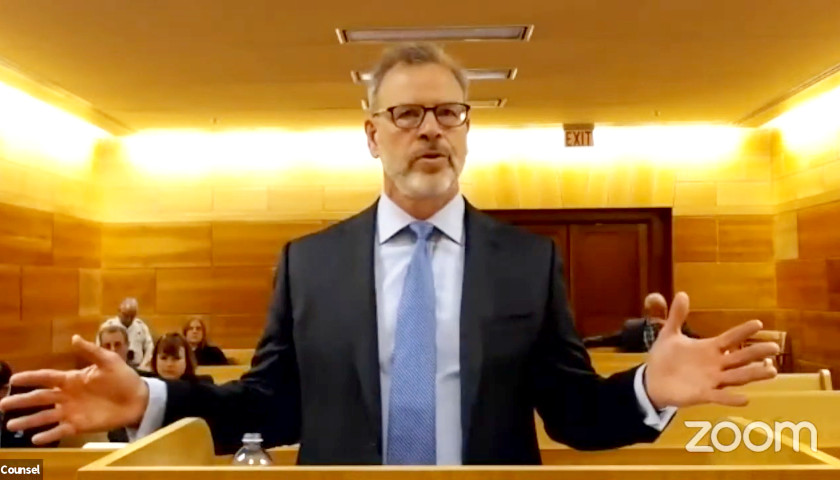Lawmakers and parents are increasingly questioning Tennessee’s third-grade retention law. While Tennessee has long had legislation in place allowing districts the ability to retain third-grade students who did not score “proficient” on the Tennessee Comprehensive Assessment Program (TCAP) test, the previous law left the decision up to local districts. Legislation passed during 2021’s Special Session took that decision out of local districts’ hands and made it state-mandated. A move that state lawmakers are now openly questioning.
At a recent Government Operations Committee meeting, lawmakers raised questions about the law during a rules review. State procedure empowers the State Board of Education to craft rules governing education policy created by the General Assembly. Those rules must again be approved by legislators through the rulemaking process. This is often quick and perfunctory, inspiring little discussion. In this case, lawmakers had plenty to say.
State Representative Gloria Johnson (D-Knoxville) called the law “damaging to children”, alerting her fellow lawmakers that “approaching proficiency” does not equate to “not reading on grade level. While recognizing that the law was already in place and that they were simply discussing the rules of governance, she could not in “clear conscience pass up an opportunity to speak against the law.”
Referring to current students as “COVID babies,” while acknowledging their struggles, State Senator Page Walley (R-Bolivar) told committee members, “I have not received inquiries about any issue, since we were out of session, more so than this one. From parents, teachers, and administrators, that just feel like we may be overstepping with asking that this be done in this manner rather than allowing locally elected leaders in concert with the department to make these very excruciating decisions”.
Walley acknowledged the seriousness of children failing to learn to read proficiently, but he struggles to accept that this retention strategy is the best strategy, saying, “I am really uncomfortable with the idea that this is the best way. I don’t know the best way and I’ll confess it. I don’t think this is it. I think it has to be more in concert with deeper discussions at the local level, and greater flexibility.” Despite supporting the bill in session, he now recognizes that lawmakers may not have been thoughtful enough in creating the law, and can’t support it as it stands.
Echoing Walley’s sentiment, Senator Janice Bowling (R-Tullahoma) reminded committee members that she had voted against the bill in session, calling it a “simple solution to a complex problem.” Bowling raised further concerns about the methodology being utilized to teach reading as opposed to children’s inability to learn to read.
Tennessee Department of Education’s (TDOE) Chief Academic Officer Lisa Coons responded, outlining revisions made during the past year to the current methodology. This includes extensive training for teachers in the use of phonetics as a teaching tool, an increased focus on foundational skills and high-quality materials, and the creation of a state-mandated universal screener that would aid in the early identification of possible student challenges.
She further illustrated how the law provides exemptions for students who have a disability, are ELA students, and have a suspected reading disability. Those students who score “approaching proficiency” on TCAP can avoid retention by either taking a retake at the end of the year and passing, enrolling in a summer program and attending 90% of sessions, or enrolling in a state-funded tutoring program for their fourth-grade year. Those students who are not considered “on track” must do both tutoring and summer school.
As outlined by Lisa Coons the law works to ensure that struggling readers receive the services needed in order to become proficient readers.
In response to lawmakers’ reticence, State Board of Education representative Nathan James spoke to remind them that legislation was already in place and that they were just working on governance rules. Failure to pass the rules would mean the law was in place, but the appeals process would not be.
Representative Mark Cochran (R-Englewood), called for the vote while acknowledging that the law wasn’t perfect, but called it a good start and offered that if lawmakers don’t like the law they would have an opportunity to make changes next session.
The motion was passed by House members with an 8-2 voice vote, in the Senate the vote was split with Walley, Bowling, and Paul Rose (R-Tipton) voting “nay.” The rule goes out pursuant to House approval, but can still be amended if any member desires.
Tennessee parents, voice many of the same concerns raised by state legislators. Questions and concerns abound as implementation approaches.
Kelley Peters, a parent of a kindergartener enrolled in MNPS, tells The Tennessee Star, “I don’t believe lawmakers realize the full implications of the law they created. Tutors are already difficult to find so when it becomes a requirement to be tutored or attend summer school to pass on to 4th grade we’re going to have a problem with classroom space that will grow every single year. Parents won’t be able to afford or find a tutor or can’t make summer school work and will be forced to hold their child back. Next year we’ll see 3rd-grade classrooms ballooning to 30-50 students dependent on the district, which will require more teachers for that grade level, but will there be room for adding more to keep classes small?’
As a grandmother who has grandchildren in several Tennessee school districts, Gracie King texted to The Star, “If you’re waiting until 3rd grade, you are already behind the 8-ball. You have placed that child at a great disadvantage for everything they are to learn that 3rd-grade year. 3rd-grade retention is in poor service to students, and their future learning”.
It’s a sentiment that aligns with the thoughts of House Education Chair Scott Cepicky (R-Culleoka), who is exploring making state-sponsored summer camps and tutoring options available for all students from kindergarten through 4th grade.
All parties are aligned in the goal of increasing the reading proficiency of Tennessee’s children, but disagreements remain on how best to bring that about.
– – –
TC Weber is a reporter at The Tennessee Star and The Star News Network. He also writes the blog Dad Gone Wild. Follow TC on Twitter. Email tips to [email protected]. He’s the proud parent of two public school children and the spouse of a public school teacher.








